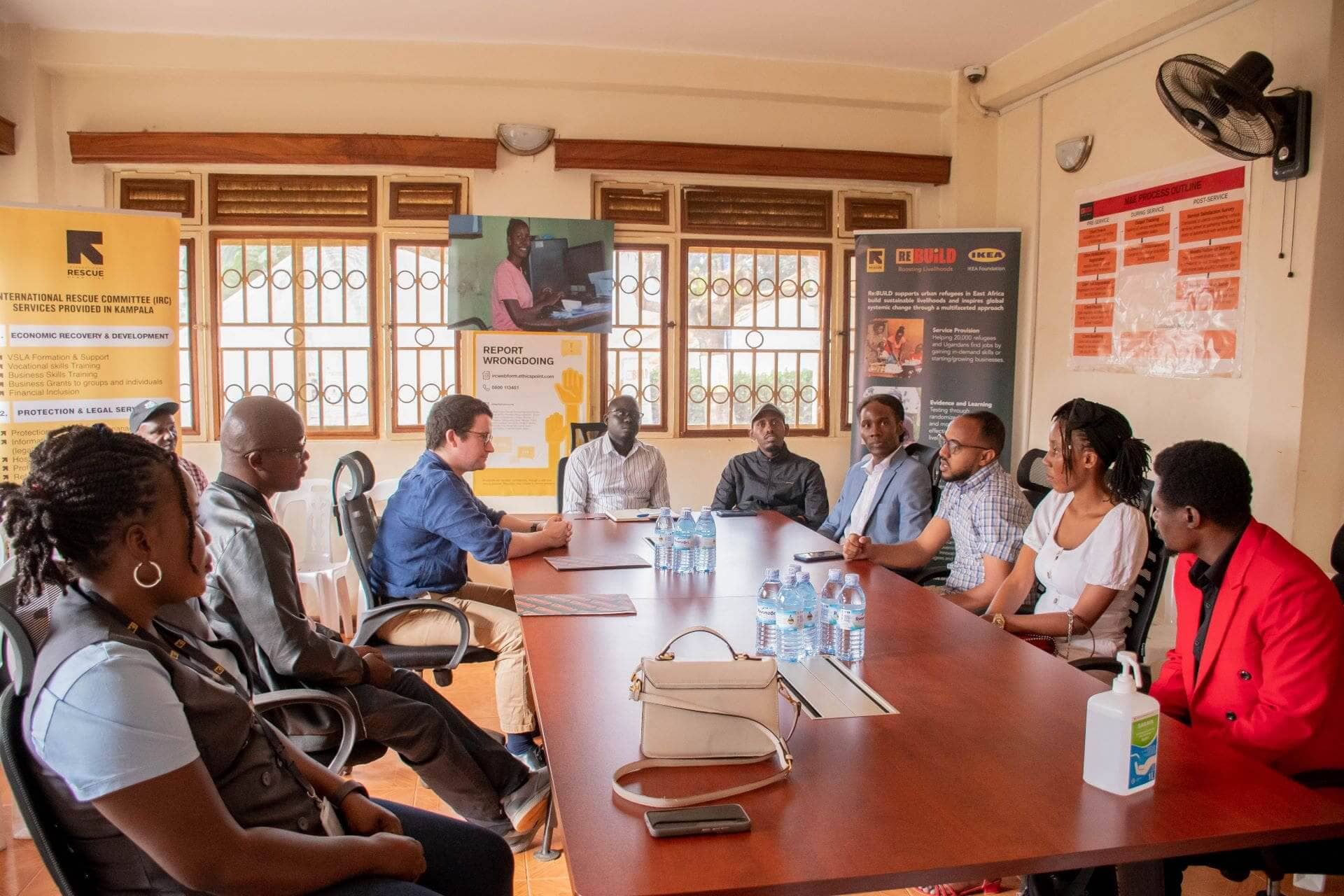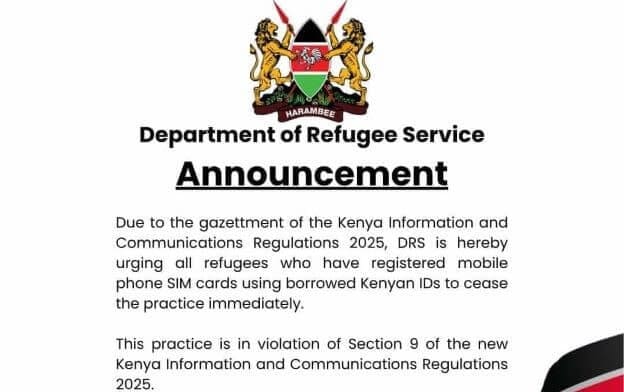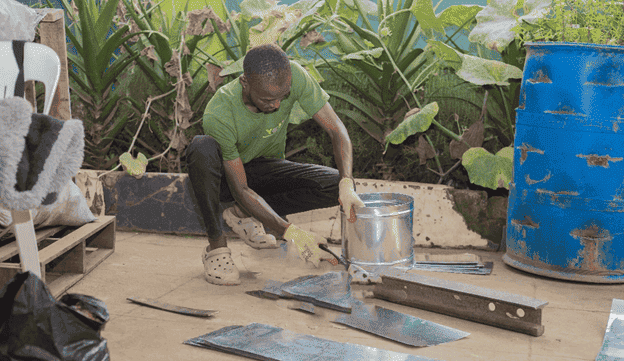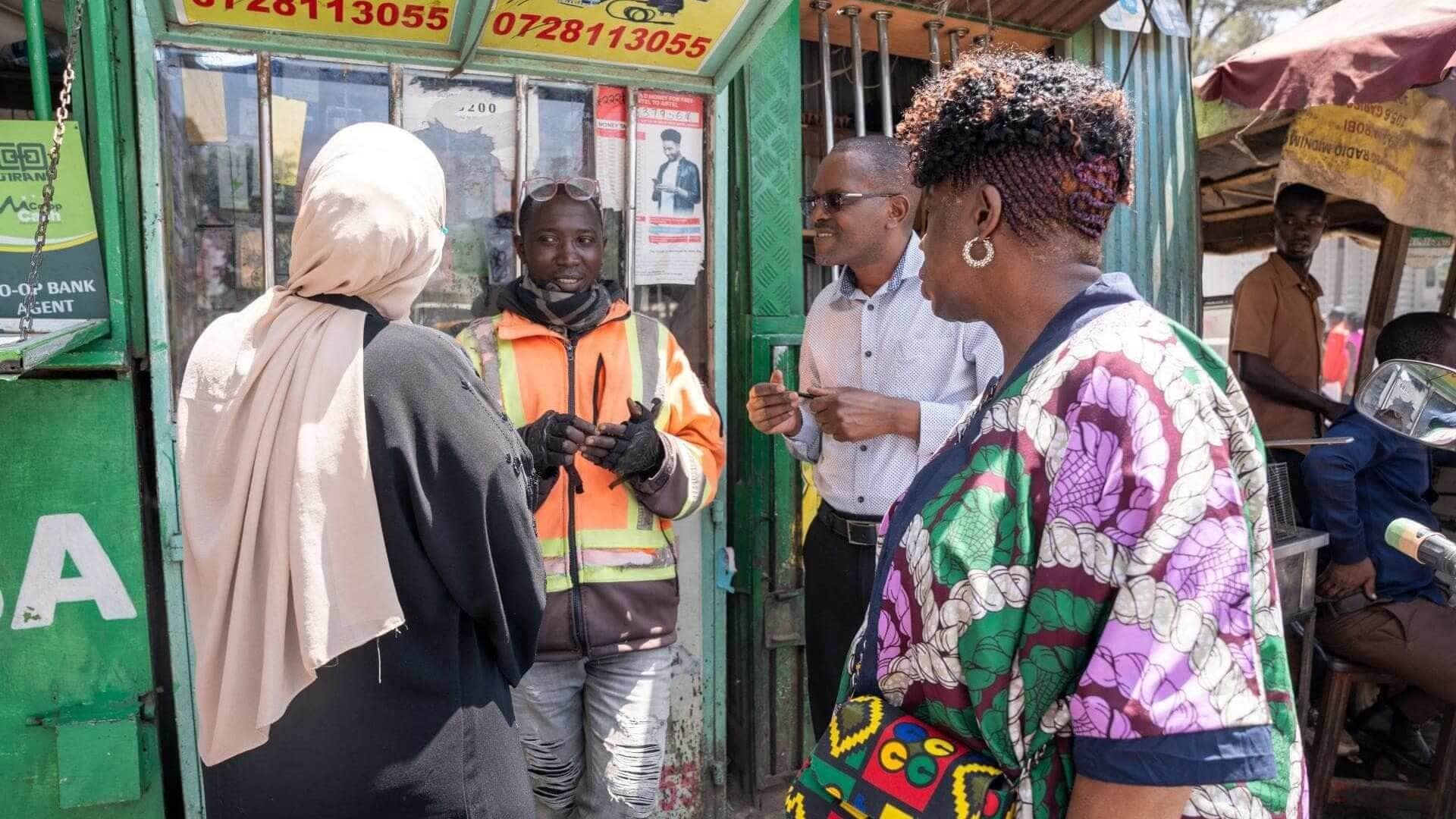British High Commission representative ‘fascinated’ by IRC work in Kampala
British High Commission representative ‘fascinated’ by IRC work in Kampala
British High Commission representative ‘fascinated’ by IRC work in Kampala

February 6, 2025, Kampala, Uganda. William Carver-Grenside (in blue shirt), Second Secretary Humanitarian - British High Commission, Kampala alongside Elijah Okeyo the IRC Uganda Country Director interact with clients at the IRC Livelihoods Resource Centre in Nsambya. (PHOTO: Edna Karyne Kyokunzire for The IRC)
“It was fascinating to see firsthand the work being done, and especially to hear directly from those we spoke with,” said William Carver-Grenside, Second Secretary Humanitarian - British High Commission Kampala, following his visit to the IRC Re:BUiLD clients in Kampala on February 6, 2025.
Among the clients was Florence Kavugho, a Congolese refugee supported by Re:BUiLD. Florence begun her journey working in a hair salon before starting her own business – Kyose Locs. She received a €500 (UGX2 million) business grant from Re:BUiLD in 2022 under the Randomized Control Trial Wave 1 (RCT Wave 1) which boosted her salon business. Additionally, she benefitted from a 6-month business mentorship under Re:BUiLD’s microenterprise intervention, a research study which explored the impact of cash grants and group mentorship on micro-businesses.

February 6, 2025, Kampala, Uganda. William Carver-Grenside (in blue shirt), Second Secretary Humanitarian - British High Commission Kampala interacts with Florence Kavugho a Re:BUiLD client at her salon in Kasubi, Kampala. (PHOTO: Edna Karyne Kyokunzire for The IRC)
At her salon, Ms. Kavugho currently employees 4 people; two refugees and two Ugandans. She specializes in plaiting the much sought-after deadlocks, charging each customer at least €50 (UGX200,000), with an average monthly income of €1,250 (UGX 5 million). She spends €500 (2 million) on operational costs leaving her with a monthly profit of €700 (UGX 3 million). From the profits realised from the salon, Ms. Kavugho set up a grocery store seven months ago which she says is doing well too.
Currently, Kampala hosts a significant number of refugees and asylum seekers, with approximately 157,000 leaving in the Kampala metropolitan area. (UNHCR 2025) Many of these refugees like Ms. Kavugho, are finding ways to sustain their livelihood through small businesses, supported by initiatives such as RE:BUiLD.“The trade-off refugees have to make between settlement or urban settings must be huge, and it will be interesting to see how to the system copes with further influxes of urban refugees,” Carver-Grenside noted.
He also interacted with clients at the Re:BUiLD Livelihoods Resource Centre in Nsambya where they access services such as case management support including; legal counselling, referrals and psychosocial support, as well as basic ICT skills training.


